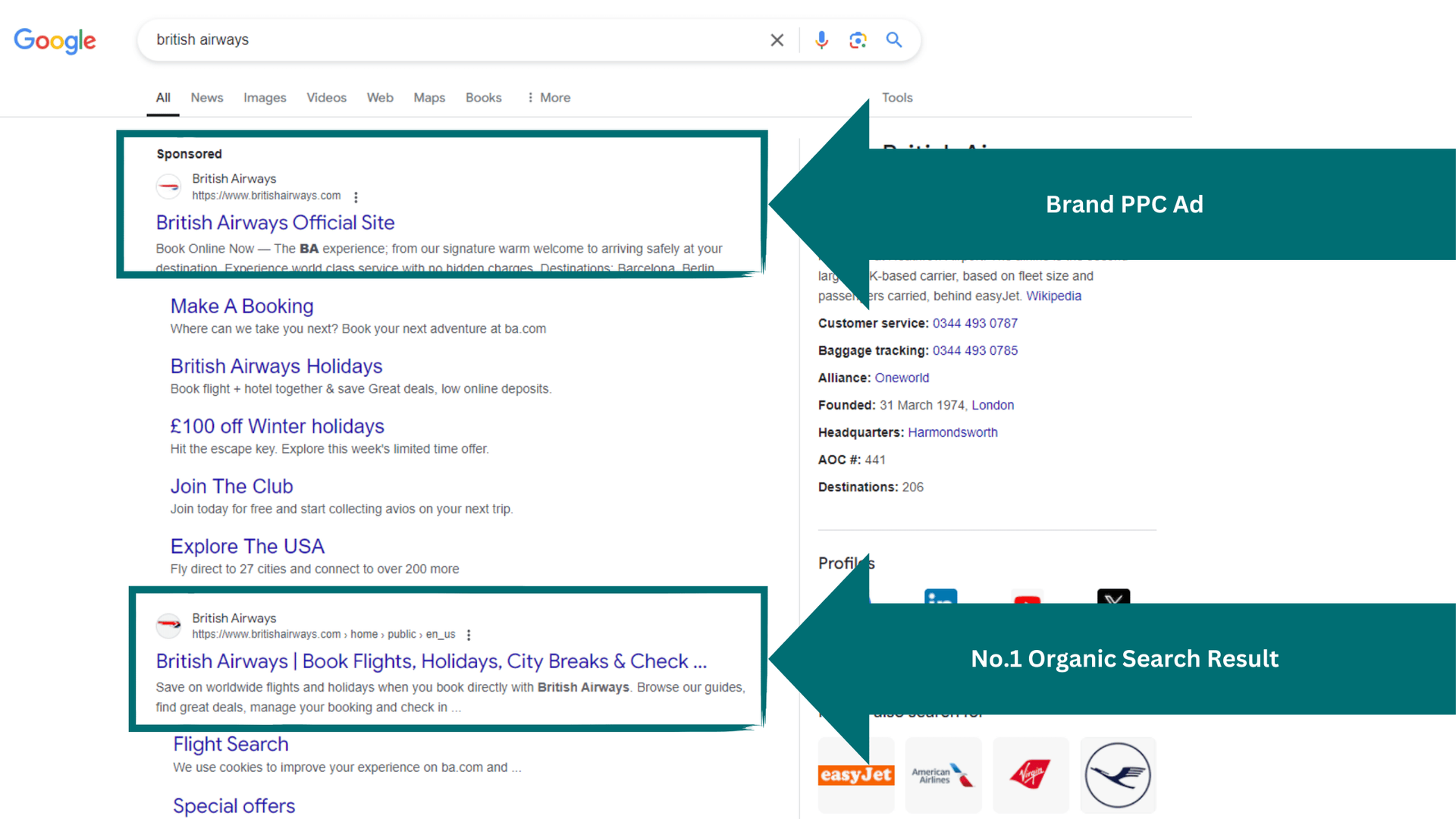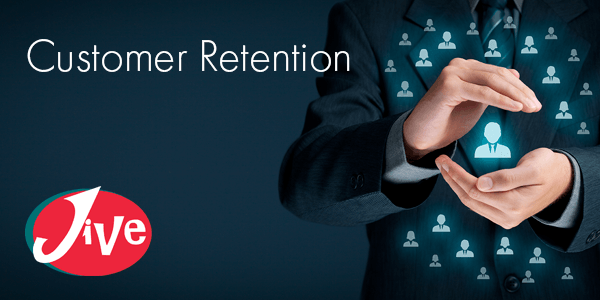What is the point of paying for an ad that shows directly above your organic search listing?

These are questions I’ve been asked multiple times by clients, worried they are wasting valuable ad budget on a click they believe they’d have gotten naturally if the campaign wasn’t running. This is especially important to small businesses, where every penny of their marketing budget is extremely hard earned and needs to be fully justified. However, it would be wise to understand a bit more about what’s going on behind the digital scenes before making a rash decision to kill your brand campaign just on the premise that you’re number 1 organically.
In this article I’m going to share some scenarios that clients aren’t always aware of, and in this rapidly changing digital landscape, nor are all agencies and marketers. It may be the case that after all of this being considered, you decide to pause your brand PPC and measure how that impacts your overall traffic volumes and conversion performance, or you may keep them running but refine how they overlap with other activity. There is no straight forward yes or no answer, however there are continued and emerging benefits to running brand campaigns that will apply to most users.
Reason 1: The increasing adoption of broad match search campaigns & protecting your brand against competitor bidding
The preferred Google search ad campaign setup (and default keyword match type) in 2024 uses broad match keywords, rather than exact match or phrase match. If you’re running Google search campaigns, you’ll be familiar with the recommendations that are always prompting you to “upgrade” any phrase or exact match keywords to broad match. Many Google ads clients and agency partners will be adopting this approach, so you need to understand what that could mean for your own campaigns and SERPs against your brand terms. What I’m not going to do in this piece is have that discussion about whether or not broad match campaigns are more effective than phrase and exact match for delivering best ROI, that’s another topic altogether, but the reality is there are lots of campaigns out there running I broad match.
I’m going to use a basic example of where you may be unaware that competitor ads may be appearing for you brand terms ABOVE your no.1 organic listing, pushing it further down the results and out of sight and consideration for many users.
Let’s say your business is called Mary’s Marketing Consultancy. Now you may think that it’s OK because you’ve checked and there are no other businesses registered under that name and you’re always no.1 organically when you search that exact phrase, but have you checked in an incognito browser at different times of the day, in different locations and on different devices to see who else and which other types of search results listings may appear? If one of your fellow marketing consultancy competitors is running a search campaign and has the keyword “marketing consultancy” set to broad match, then their ad is eligible to search for your brand phrase. You may not always see that when you search because their ad will only show some of the time (depending on their budget and auction activity at that time).
Competitors could of course be proactively bidding on your brand keywords knowingly, in which case some brands have a gentleman’s agreement not to bid on each other’s brand terms or it’s an accepted part of your market competitor landscape. However, in most instances I have known this to be raised by a client where one of their competitors has raised a flag that they believe they’re being bid against, the culprit is normally broad match ad serving and/or performance max. More on that topic shortly.
Tip: Using Google Ads Auction Insights to check your competitor overlap
If your Google brand search campaign has at least 10% impressions hare, Google will show you who else has ads that are eligible to show for the brand keyword variations in your campaign. You can see specifically:
- Which other brands can show for your brand terms
- How good their impression share is compared to yours
- How often their ads appear above yours in the same auctions
- Your outranking share - how often your ad ranked higher in the auction than another advertiser’s ad, or if your ad was shown when theirs was not
Tip: Excluding Competitor Brand Terms from Broad Match
If you choose to proactively exclude competitor brands from your own general search activity, you can apply a negative keyword list to exclude them from serving your ads. Similarly, if a competitor agrees to do the same, send them a list of all variations of your brand name so they can stop their ads showing for your brand searches. Think about the use of match type for your negative terms though. If there are many combinations you may wish to use a phrase match negative, for example in the business name above, if we just added “Mary’s Marketing Consultancy” as an exact match, ads may still show for terms such as “mary’s marketing services” or “mary’s marketing near me”. Be wary of using broad match for negative keywords, as this can exclude affinity terms as well as those using the prescribed keywords.
In my experience, Google’s definition of broad match does not seem to apply rigidly to many of the matched search terms I have seen when monitoring my campaigns. Google’s own AI overview search result for the definition of broad match reads like this:
Broad match is a keyword matching option in Google Ads that allows ads to appear for searches that are related to a keyword, even if the keyword terms aren't included in the search. Broad match is the default match type for all keywords, so it's the most comprehensive and reaches the widest audience.
Here are some things to know about broad match:
Broad match keywords can match searches for any word in the keyword phrase, in any order, as well as any word that relates to the keyword. For example, if you use broad match on "luxury car," your ad might appear for searches like "luxury cars," "fast cars," or "luxury apartments".
Reason 2: More Data & Insights
Another benefit to running a brand campaign is the depth of data you can see about the traffic being driven to your website or viewing your campaign assets. If you have Google Analytics (GA4), Google Search Console (GSC) and Google ads running together and linked up properly, you have the maximum available ways to see the profile of users and what’s driving them to your website and resulting in good and bad quality traffic. If you just rely in GA4 and GSC you won’t see the data at conversion event level by search query.
The campaign data will also use audience profiles so can know a little bit more about your users based on what Google tracks about them across its platforms. You can also see if particular search categories are growing in popularity to help you plan budgets. This metric can also be helpful in measuring brand awareness.
Tip: segment your match type breakdown against your keywords, and check the range of search terms behind your keywords to see the individual conversion rates of brand term variations. If you are running a separate brand search campaign, make sure you add brand negative keywords in any generic campaigns to avoid cannibalisation and potentially skewed average cost per click data.
Tip: This support article from Google explains how a linked ads, GSC & GA4 environment can give you better learnings to use PPC tactically to plug your organic gaps.
Reason 3: Google Performance Max Formats
Whilst still a relatively new campaign format (although it’s been around since late 2021), many are yet to dip their toe or fully understand what controls are available. In fact, this is changing day by day with Google now allowing advertisers to see data a little more granularly and start to get some greater control over keyword targeting. Quite often, a Performance Max (or P Max for short) campaign can quickly adopt the behaviours of a brand campaign, and in some instances also cover the role of a retargeting campaign. This is because Google encourages you to use your own data sources in the audience signals where you tell Google how to find an audience that most likely to meet your campaign objective.
TIP: If you are running a brand search campaign and a P Max campaign where you’ve not excluded brand terms, you may find it useful to experiment with pausing your brand search campaign, as P Max also serves across the search network as part of its multi-platform delivery method. Up until now, advertisers have had to request a manual exclusion for keywords in P Max via Google Ads support, however this is now changing with the functionality being made available to campaign managers. For smaller businesses this may mean you can save a few pennies pausing a brand search campaign and any extra time it takes to manage that.
Reason 4: A crowded screen estate in our changing search experience and the emergence of the AI Overview
Your organic listing now has many other types of listings vying for its top spot. It will now appear under other results such as search ads, local results, shopping ads, YouTube videos and the emerging AI overviews, so suddenly that traditional gold dust no.1 organic ranking is getting pushed much further down the SERPs and probably not driving as much traffic as it used to.
Although only appearing for approximately 7% of Google searches today, the AI overview is being spearheaded by Google as one of their main focuses in the future of search. This topic was rife at SEO Brighton, the world’s leading event for SEO specialists I recently attended. SEO and PPC should not be considered as separate entities. Businesses must think of them both playing complimentary roles in today’s fast moving search environment.
Reason 5: Doubling your screen estate
As mentioned in the above point, if you don’t advertise your brand, someone else’s listing or a map pack can push your organic link down the screen. Even if your brand ad appears directly above your organic listing, your brand is taking up twice the space it would have, making users scroll down further to see any alternative providers.
When is it a no-brainer to run a brand PPC campaign?
These are the main two reason why I would strongly advise running a brand PPC campaign.
- You’re not ranking no.1 for your own business name. This could be because you’ve launched a new website, a competing website managed to rank above you or something’s gone wrong in your SEO. You may even have a brand name that could also be deemed a generic term or descriptor which increases the chance of competitor activity spoiling your party.
- You’re competing with resellers or brokers for your own brand. They offer your own product, but you want to gain more direct customers. A typical example for this would be hotels and online booking agents or anyone who has their offering in a comparison site.
I hope this has given you some food for thought if you’re in that camp who’s worried about ‘wasting’ PPC spend on brand terms.
If you’d like to learn more about how we can help with your organics SEO efforts, check out our SEO services overview. And for paid search ads management, we can always help evaluate your existing search campaign setup for optimisation opportunities, or provide a fuller Google Ads management experience.
Contact us today for a no obligation discussion on taking your search engine marketing up a gear.











